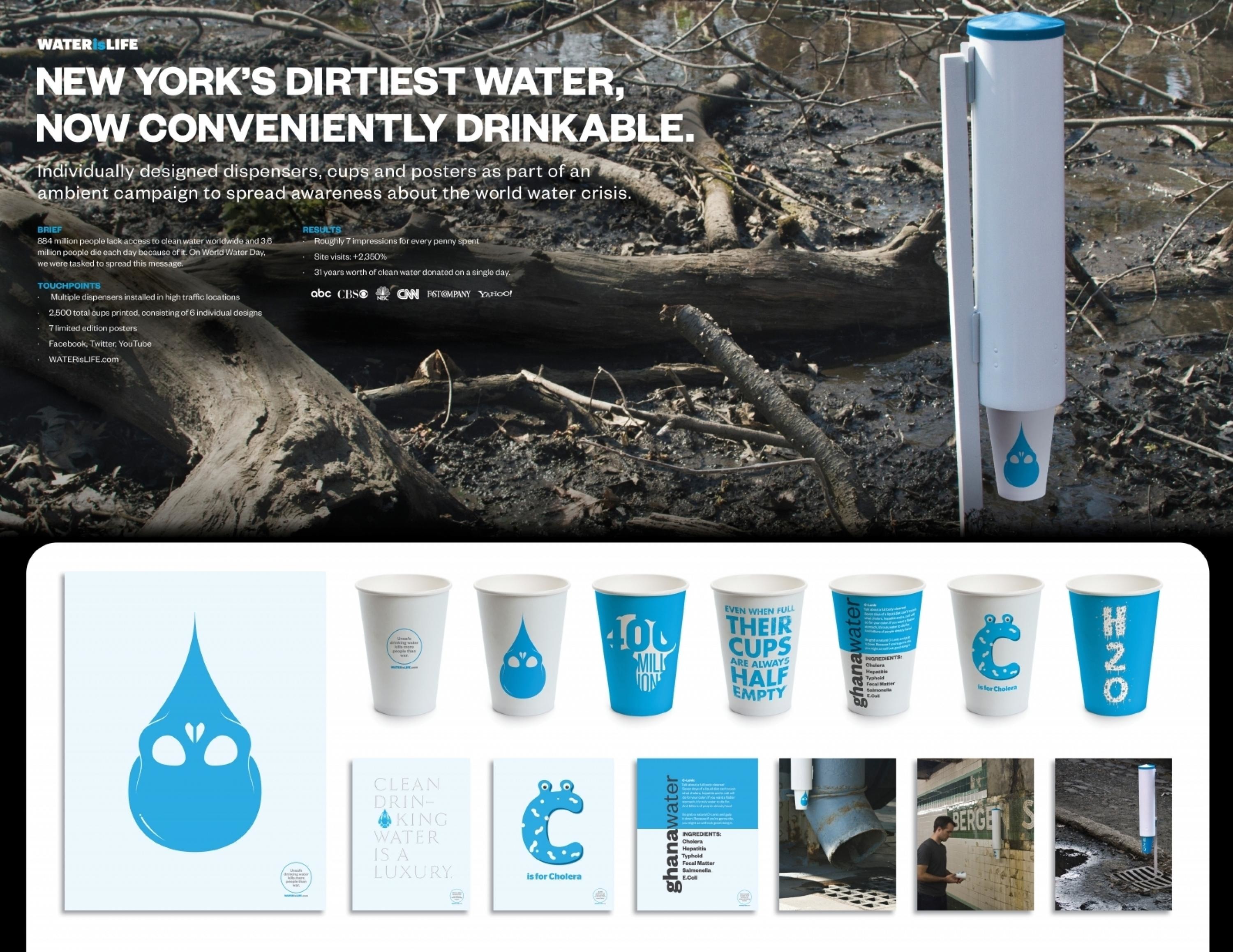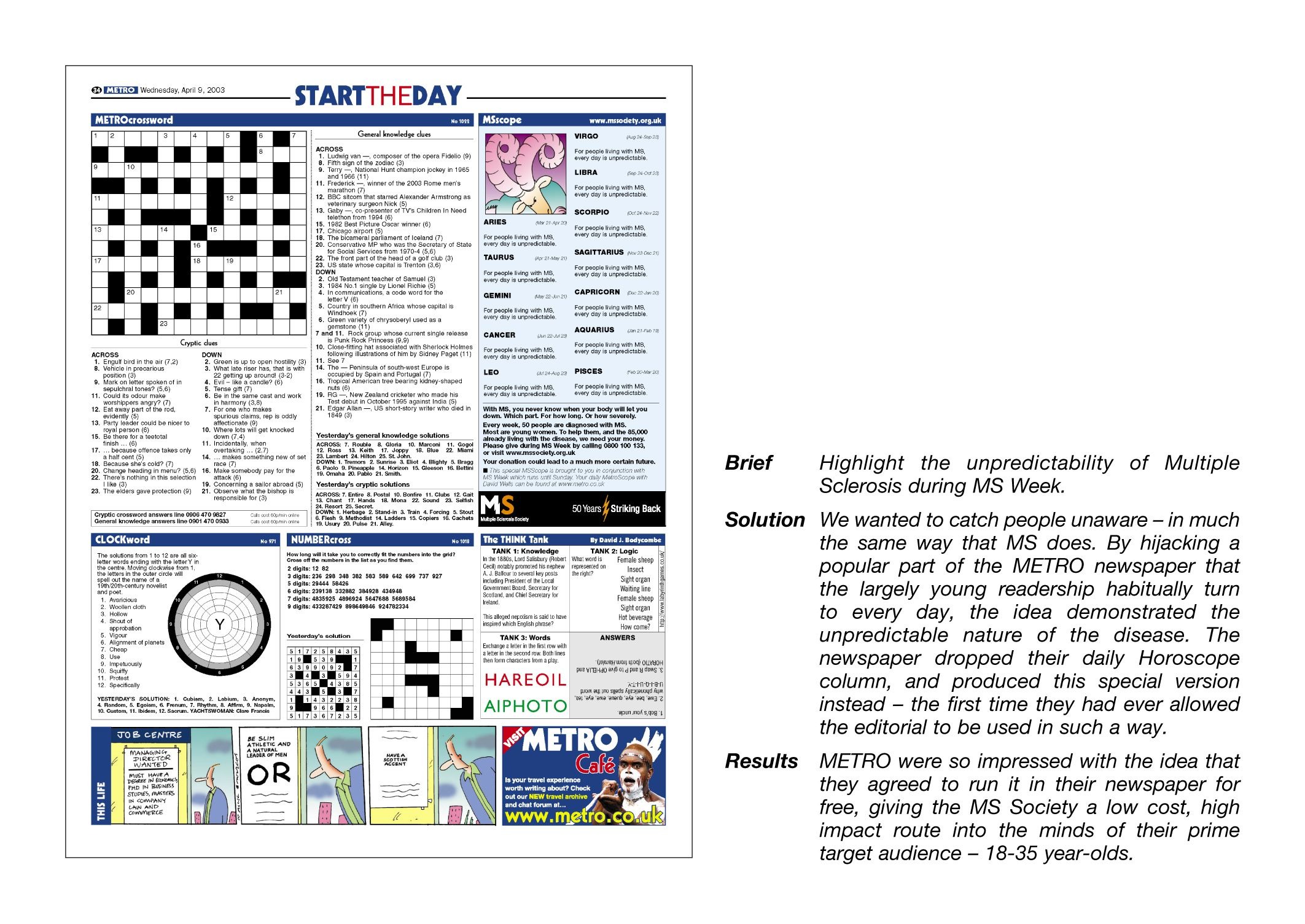Cannes Lions
The Mindsets Paper
FCB, Toronto / CANADIAN DOWN SYNDROME SOCIETY / 2022

Overview
Entries
Credits
Overview
Background
Fitness isn’t something we encourage or emphasize for the Down syndrome community, because we underestimate what they can accomplish and the benefits they will receive. Yet, athletes with Down syndrome have shown that fitness has the power to not only strengthen the body, but also the mind. For example, Down syndrome athletes like Ironman Chris Nikic have observed improved memory, enhanced learning, boosted social skills, and increased confidence – all of which allow for a more independent lifestyle. Anecdotally, we know that fitness holds the power to improve cognition for people with Down syndrome, but it’s never been scientifically proven.
So, we set out to close the research gap. By collecting the required scientific data, we would prove the importance of fitness and legitimize it as a prescribed therapy. We would also drive awareness of the importance of fitness to ensure it would be accepted by doctors and caregivers alike.
Idea
The current Down syndrome generation is going to be the first one to outlive their parents. As recently as 1983, the average lifespan of a person with Down syndrome was 25 years, today the average lifespan is 60 years - or even longer. For most, this means outliving their primary support system.
However, they are also on the cusp of living independently. If doing regular exercise leads to improved cognition, this would allow many members of the community to live on their own, with little to no supervision. The improved cognition would better equip them to develop the necessary routines and structures they need to live independently; routines and structures that we all take for granted.
Introducing Mindsets, an evidence-based, globally unprecedented study to definitively prove the link between fitness and cognition for the Down syndrome community.
Strategy
Dr. Gordon from ARU developed the research study, which included a fitness program that entailed 30 minutes of exercise, six days a week. In collaboration with Dr. Mahncke of Brain HQ, and following our pilot test, they selected 19 mind games for the study, based on engagement level and ease of access. Once participants were approved, they were randomly placed in one of four cohorts to meet the study’s requirements. Participants were provided a Fitbit to record their physical activity and access to the Mindsets app where they could record their cognitive exercises. The app also connected research coordinators with study participants to motivate and keep them on track.
The study cohorts.
Control: life as usual
Exercise: 30 minutes of walking/jogging 3 times/week for 8 weeks.
Cognitive: 20 minutes of brain training with BrainHQ 6 times/week for 8 weeks.
Test: Follow both the physical and cognitive exercises listed above.
Execution
Mindsets rallied individuals with Down syndrome from around the world, involving the community in a ground-breaking solution for millions living with cognitive challenges. The user experience on cdss.ca was built to be informative and inviting. We screened potential participants with physical and cognitive tests, including doctor confirmation, to ensure they could complete the required tasks. Once participants were approved, they were randomly placed in one of four cohorts to meet the study’s requirements. Participants were provided a Fitbit – all Fitbits were donated by Google – to record their physical activity and access to the Mindsets app to record their cognitive exercises.
Mindsets is the world’s first app to join data from physical (Fitbit) and cognitive (BrainHQ) training apps to provide not only a seamless experience to our participants, but to correlate the required data for the research team at Anglia Ruskin University (ARU).
A range of abilities exist within the Down syndrome community. We needed to be inclusive and make the experience easy and enjoyable. Based on discussions with the CDSS team and several doctors and researchers, the following decisions were made to optimize the app:
Web based to take visual and dexterity disabilities into account
Visually oriented using preferred colour schemes
BrainHQ and ARU worked closely to select the ideal cognitive games
The apps were housed together to increase engagement and participation
Two-way communication encouraged dialogue between participants and researchers
Our Coach Chris encouragement videos kept the participants engaged and motivated
We conducted a pilot study with 12 participants to optimize the app and study design
SUPPORTING CHANNELS:
One long-form promotional and two recruitment videos
Paid social to support awareness/recruitment efforts
Email campaign to reach global Down syndrome communities
Organic social to reach 50+ influencers in the Down syndrome community
cdss.ca/mindsets as our content hub and registration platform
Outcome
Prove the importance of fitness through research and data:
• 200 participants recruited - achieving our goal of becoming the first-ever, statistically significant study on exercise and cognition within the Down syndrome community.
• Participants from four continents around the world
Drive awareness of the importance of fitness with only $5000 in media:
• 180M media impressions
• 600,000 video views, tripling our objective.
After only 8 weeks, initial data has showed life-changing improvements across the following metrics:
89% improvement in cognitive tests, a statistically significant improvement
63% reported improvements in Verbal Communication
50% reported improvements in Numeracy Skills
75% reported improvements in Self Confidence
63% reported improvements in Reading Ability
64% reported improvements in Day-to-day Life
The completed research study will be shared at world-renowned conferences and in accredited medical journals later in 2022 to ensure physical activity becomes a prescribed therapy for people with Down syndrome.
Similar Campaigns
12 items






